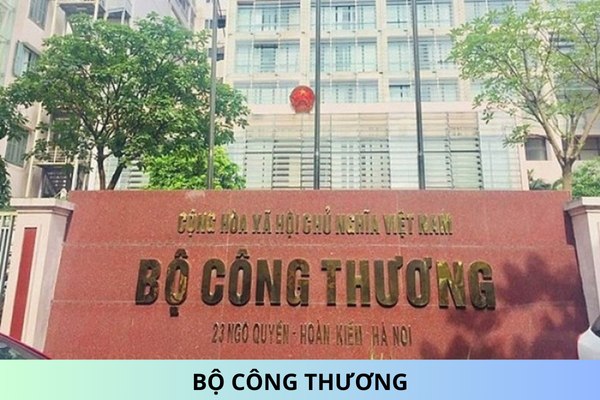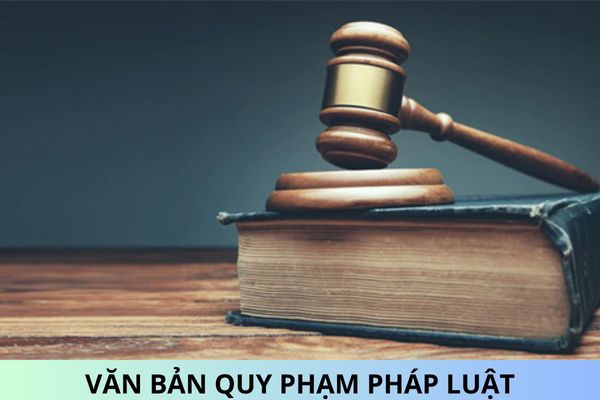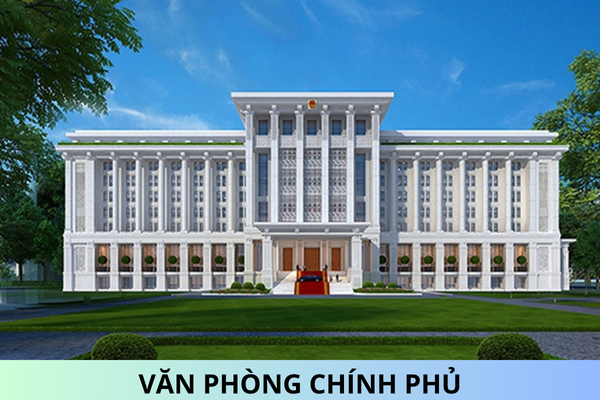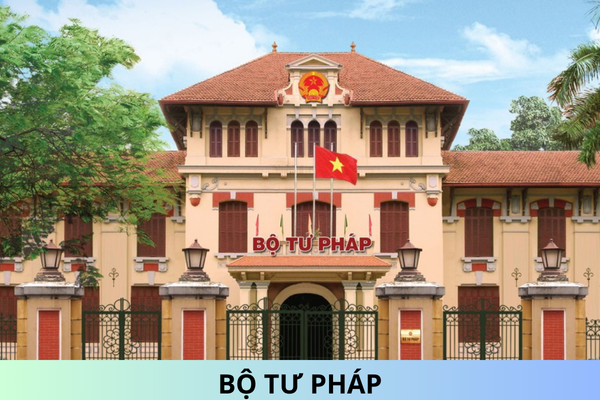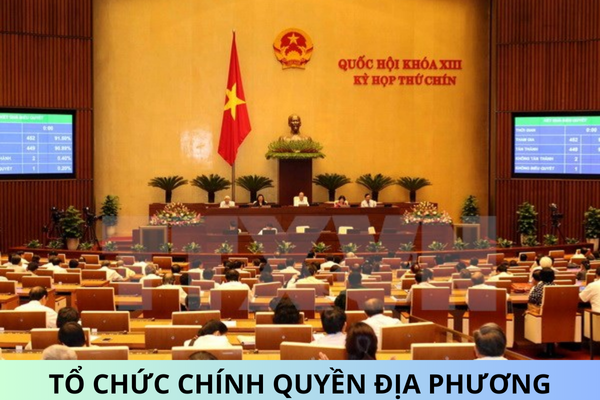Regulation 262-QD/TW in 2025 amending Regulation 22-QD/TW on inspection, monitoring, and discipline of the Vietnam Communist Party
What are details of the Regulation 262-QD/TW in 2025 amending Regulation 22-QD/TW on inspection, monitoring, and discipline of the Vietnam Communist Party?
On February 3, 2025, the Central Executive Committee of Vietnam issued Regulation 262-QD/TW 2025, amending Regulation 22-QD/TW regarding the inspection, supervision, and discipline of the Vietnam Communist Party.
Regulation 262-QD/TW 2025 amends, supplements, and removes certain points and clauses in the content of Regulation 22 on the inspection, supervision, and discipline of the Vietnam Communist Party:
- Article 3. Terminology explanation
- Article 4. Party Committees and organizations
- Article 6. Party ministries and Party committees
- Article 8. Inspection Committees at all levels
- Article 9. Principles of discipline enforcement within the Communist Party
- Article 16. Validity of disciplinary decisions
- Article 22. Authority and responsibility
- Article 30. Procedures for suspending Party activities
Regulation 262-QD/TW 2025 takes effect from February 3, 2025.
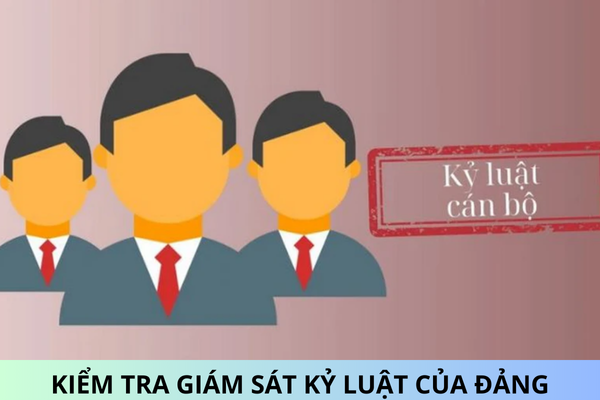
Regulation 262-QD/TW in 2025 amending Regulation 22-QD/TW on inspection, monitoring, and discipline of the Vietnam Communist Party (Image from the Internet)
How do the party executive committee and party organizations at various levels with the authority discipline members of Vietnam Communist Party who violate the Regulation?
Based on Article 11 of Regulation 22-QD/TW 2021 on the authority of Party Committees and organizations at all levels in disciplining violating Party members:
[1] The cell decides on reprimanding or warning Party members within the cell (including Committee members at all levels; Party members under the management of the superior Party Committee) who violate political qualities, ideology, ethics, lifestyle, "self-evolution," "self-transformation," Party activities, and fulfillment of Party member tasks (except tasks assigned by superiors).
- After the cell decides on reprimanding or warning Committee members at all levels and officers under the management of the superior Committee, it must report to the Committees of which the Party member is a member and the Committee and Inspection Committee managing the officer.
- The dismissal or expulsion of primary cell Committee members is recommended by the primary cell and decided by the Executive Board of the district or equivalent Party Committee.
- For Committee members at all levels operating within the cell and officers under the management of the superior Committee, if violations are committed in tasks assigned by superiors requiring disciplinary measures, the cell recommends the competent level for consideration and decision.
[2] The Communist Party's subcommittee is responsible for reviewing the disciplinary proposal from the cell to recommend the Standing Board of the grassroots Party Committee or the grassroots Party Committee for consideration and decision according to authority.
[3] The Standing Board of the grassroots Party Committee decides to reprimand or warn Party members within the Party Committee (including Party members as officers managed by the same level Committee but not the same level Committee members or officers managed by the superior Committee).
[4] The Communist Party's grassroots Committee decides to reprimand or warn Party members within the Party Committee and dismiss lower-level Committee members (including secretaries, deputy secretaries, Committee members of affiliated cells or sections but not the same level Committee members or officers managed by the superior Committee). For direct superior-level Committee members and officers within the Party Committee when violations require discipline, they are proposed to the competent levels for consideration and decision.
- If all Committee members of the cell and the grassroots Party Committee are disciplined with reprimands or warnings, a report is made for the superior authorized Party organization to make decisions.
- The Communist Party's grassroots Committee is authorized to decide on Party member admission and has the power to expel Party members, except for its Committee members and Party members as officers managed by the superior Committee.
[5] The Standing Executive Committees of the province, city, district, and equivalent levels decide on the disciplinary forms for Party members (including secretaries, deputy secretaries, Standing Executive Committee members, direct sublevel Committee members, and officers managed by the same level Committee but not the same level Committee members); they decide on reprimanding or warning same-level Committee members, Party members managed by the superior Committee for political, ideological, ethical, lifestyle violations, Party activities, and fulfillment of Party member tasks; they decide on violations of officers' assigned tasks managed by the superior Committee. In cases of dismissal or expulsion, they report to the authorized Party organization for consideration and decision.
[6] The provincial, city, district, and equivalent Committees decide on disciplinary forms for Party members; decide on reprimanding or warning same-level Committee members; Party members managed by the superior Committee for political, ideological, ethical, lifestyle violations, Party activities, and fulfillment of Party member tasks, and violations of assignments by the Party Committee. After the Committee votes enough majority according to regulations, it decides on the discipline.
[7] The Secretariat and the Politburo decide on disciplinary forms for Party members, including Party members managed by the Secretariat and the Politburo; reprimanding or warning Members of the Central Committee (including Secretariat Members, Politburo Members) for political, ideological, ethical, lifestyle violations, Party activities, and fulfillment of Party member tasks. In cases of dismissal or expulsion, the Secretariat and the Politburo report to the Central Committee for consideration and decision.
[8] The Central Committee is the final level for disciplinary decisions; it decides on disciplinary forms for Party members, including Members of the Central Committee, Politburo Members, and Secretariat Members.
What is the purpose of the Communist Party of Vietnam?
Based on the Charter of the Communist Party of Vietnam 2011:
The Communist Party of Vietnam, founded and trained by Comrade Ho Chi Minh, led the people to the success of the August Revolution, establishing the Democratic Republic of Vietnam (now the Socialist Republic of Vietnam), defeating colonial and feudal policies, achieving national liberation, unifying the country, conducting renewal, building socialism, and firmly protecting the independence of the nation.
The Communist Party of Vietnam is the vanguard of the working class, simultaneously the vanguard of the working people and the whole nation; the loyal representative of the interests of the working class, the working people, and the nation.
The purpose of the Communist Party is to build an independent, democratic, prosperous, equitable, and civilized Vietnam, without exploitation, successfully achieving socialism and ultimately communism.
The Party takes Marxism-Leninism and Ho Chi Minh's thought as its ideological foundation and guiding principle, embraces the nation's good traditions, assimilates the world's intellectual essence, understands objective laws, historical trends, and the country's realities to propose correct and appropriate political platforms and revolutionary paths according to the people's aspirations.
[....]
Thus, the purpose of the Communist Party of Vietnam is to build an independent, democratic, prosperous, equitable, and civilized nation, without exploitation, successfully achieving socialism and ultimately communism.


